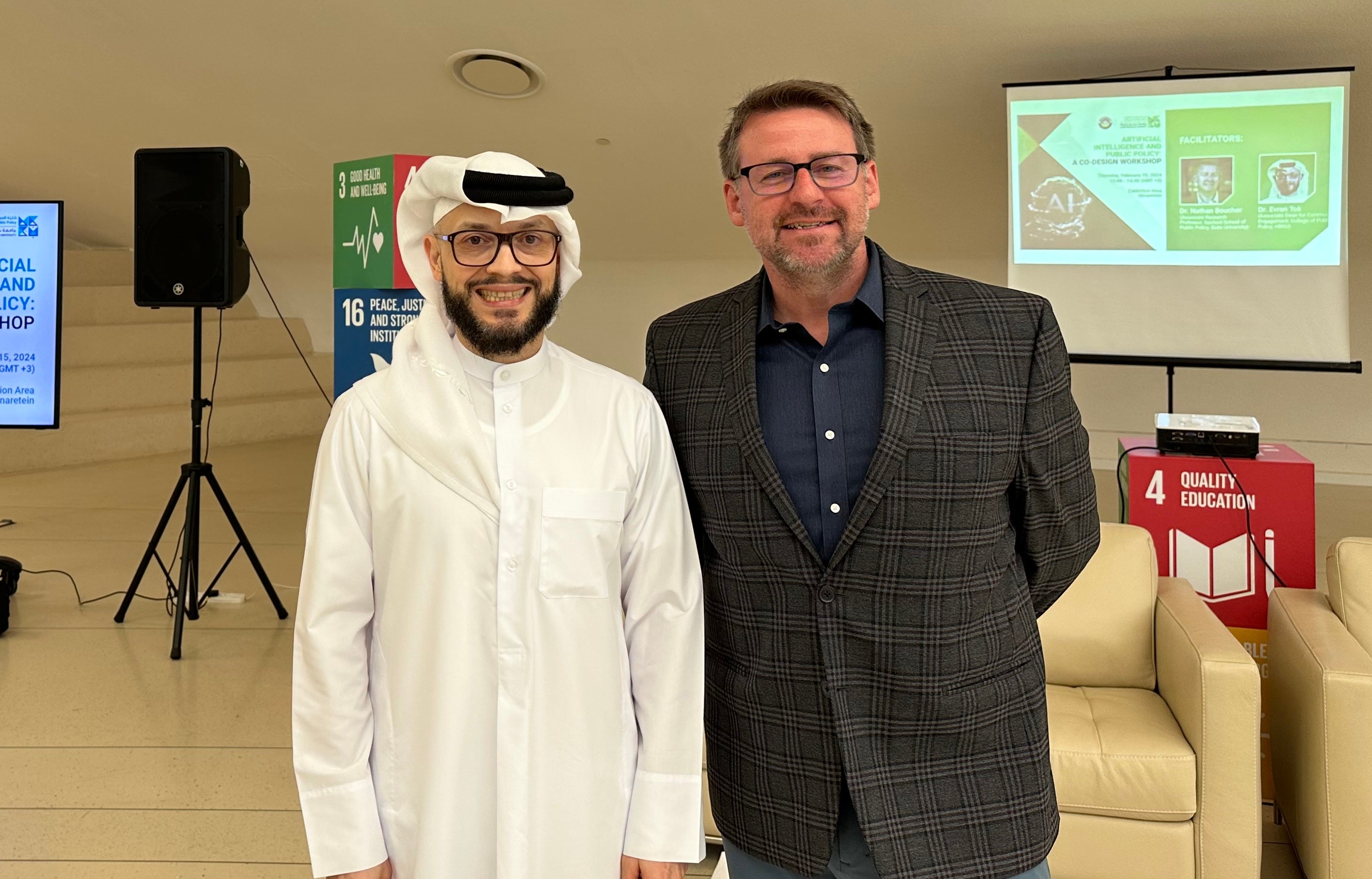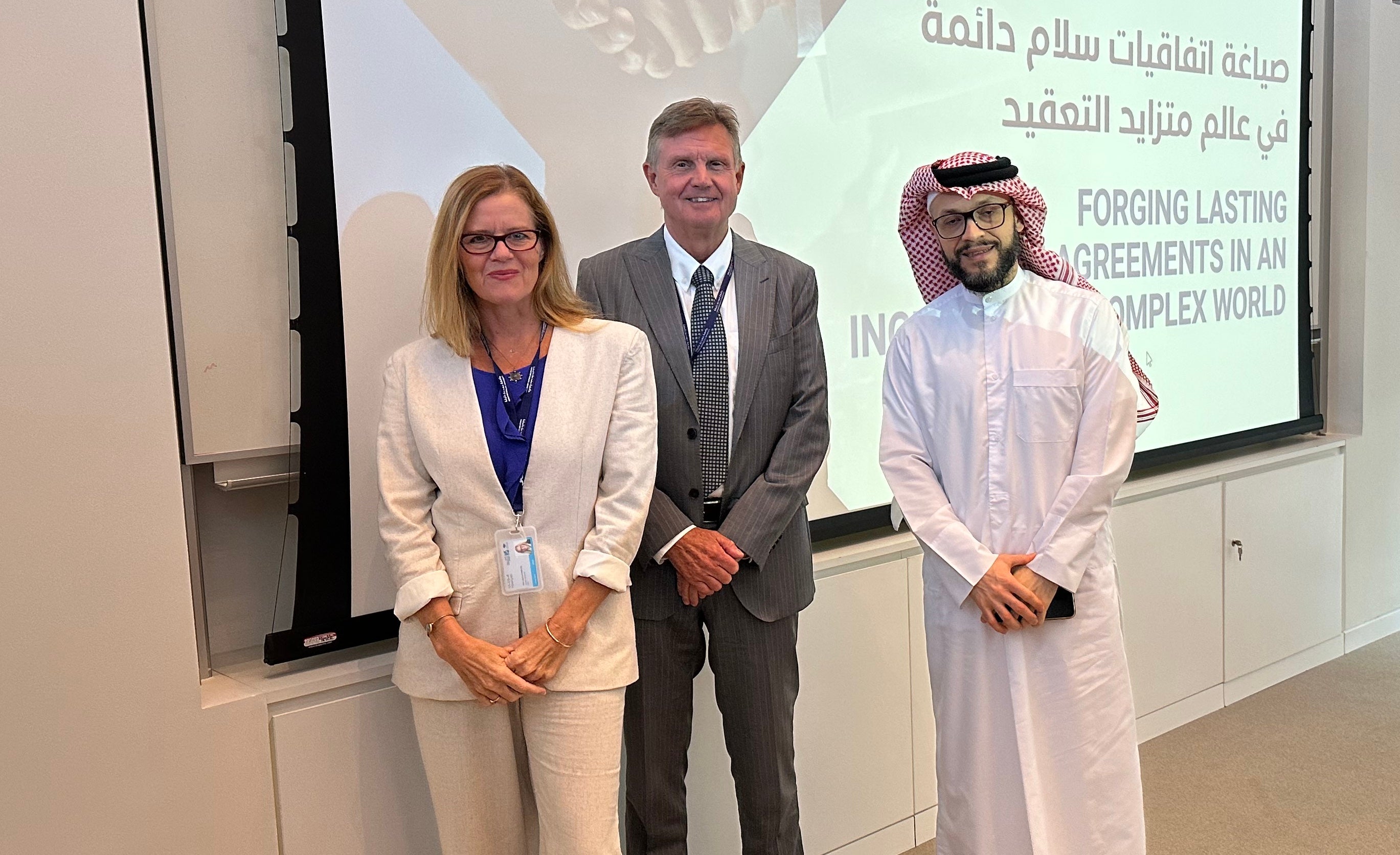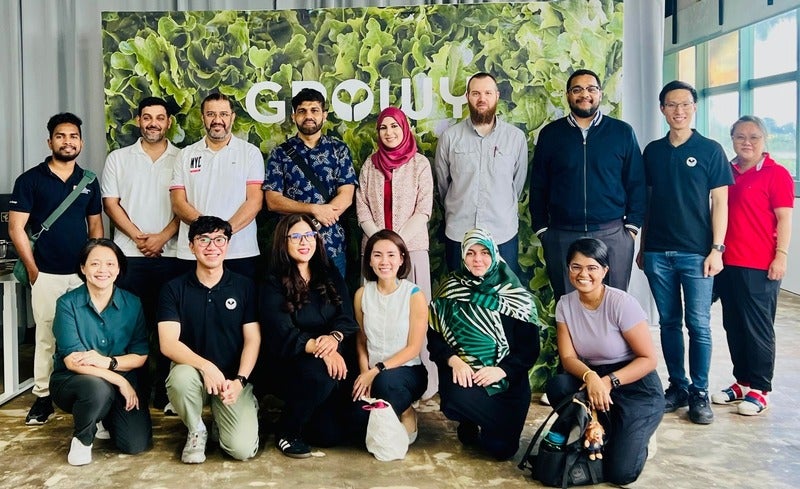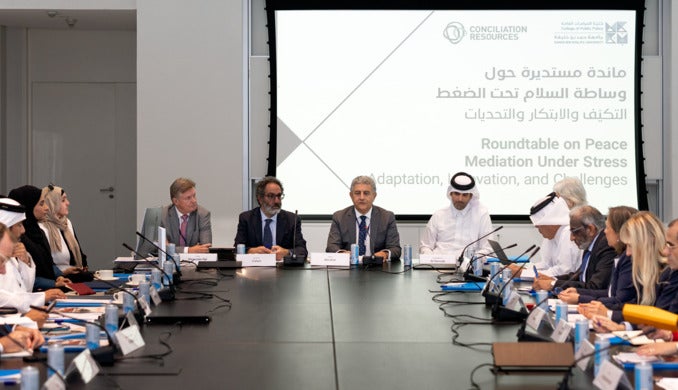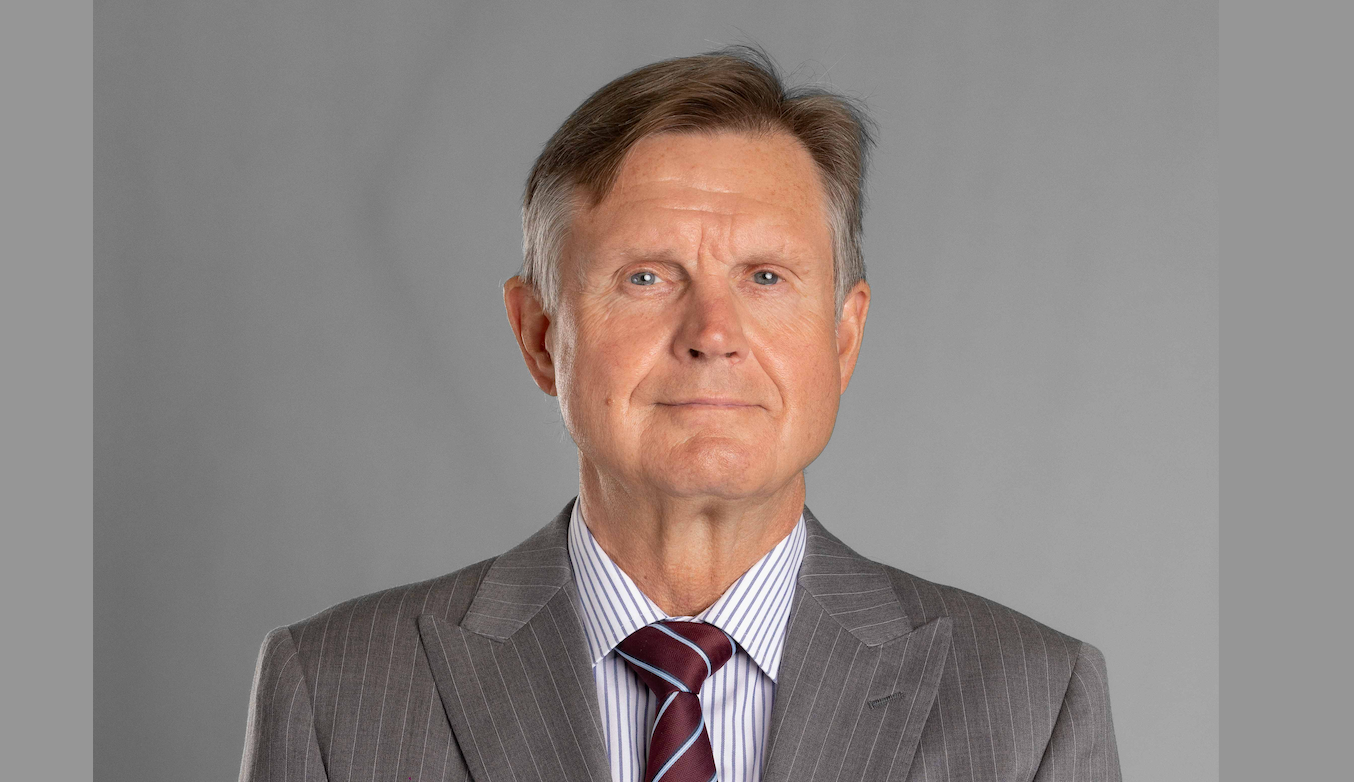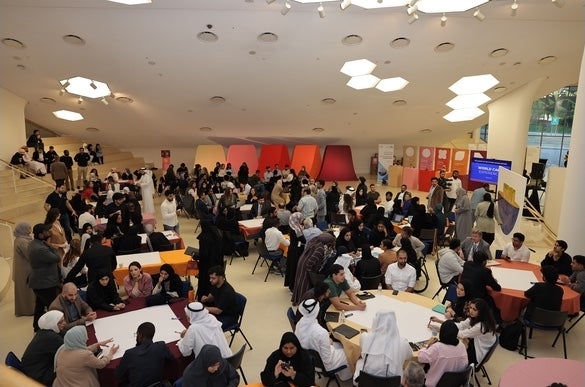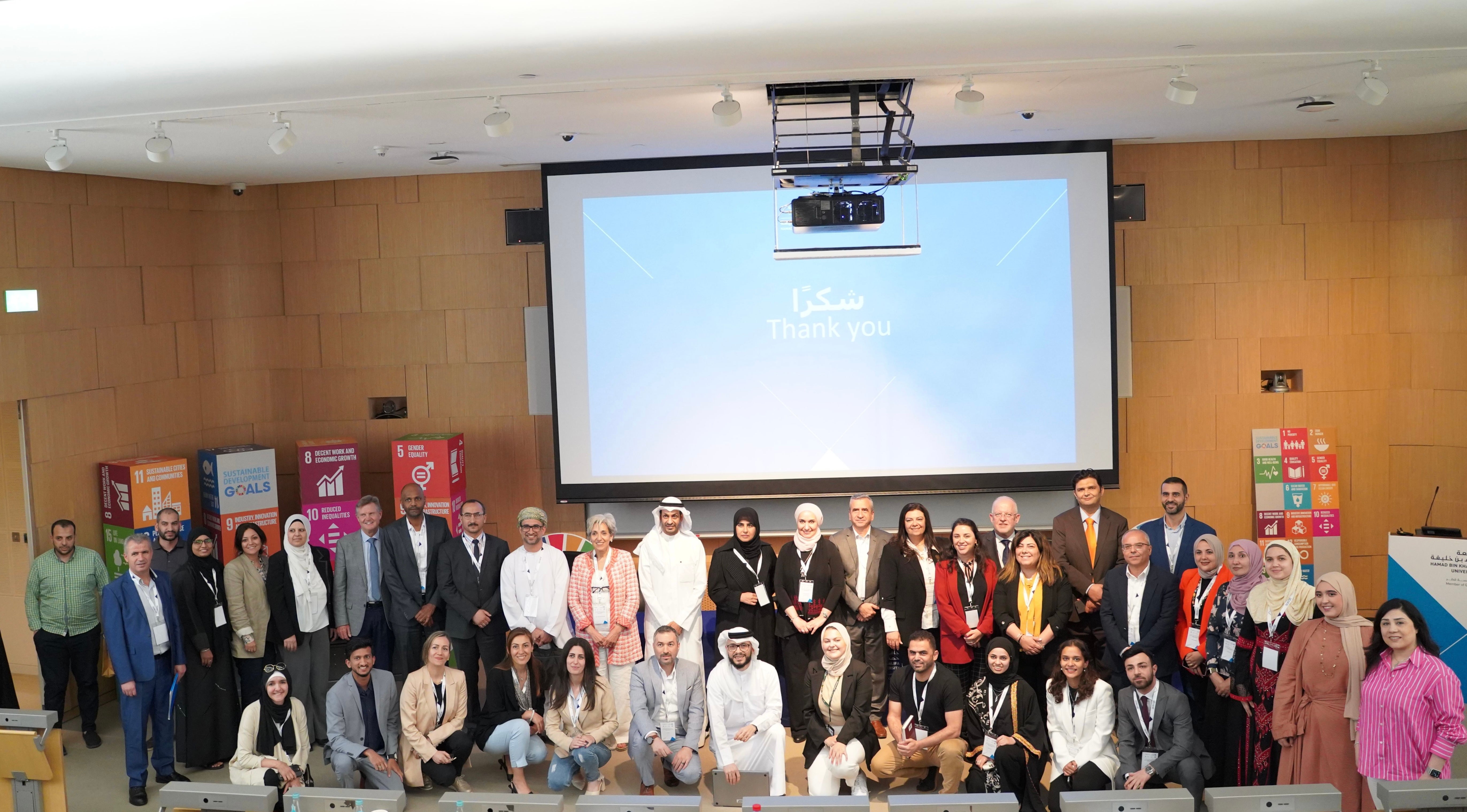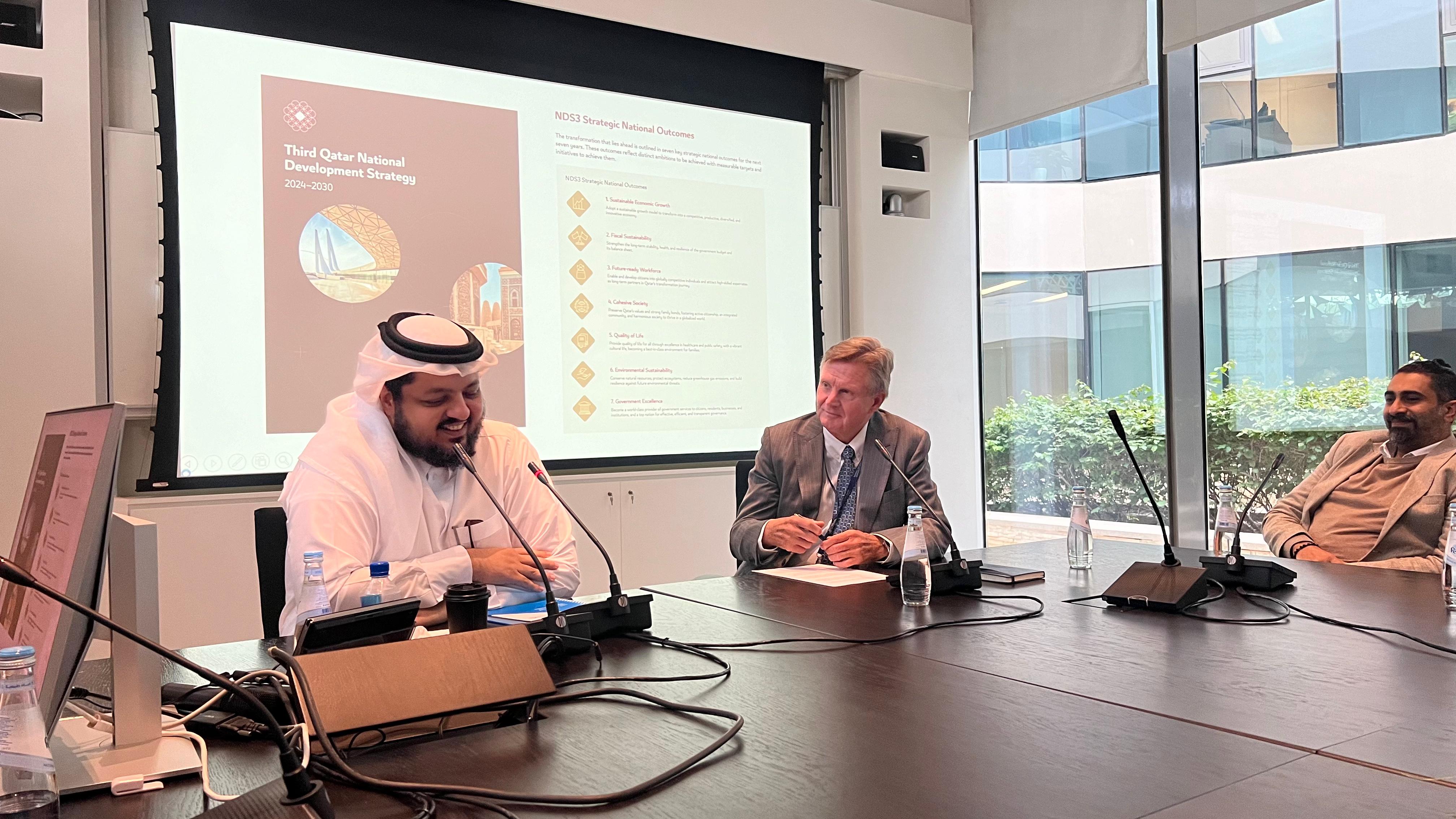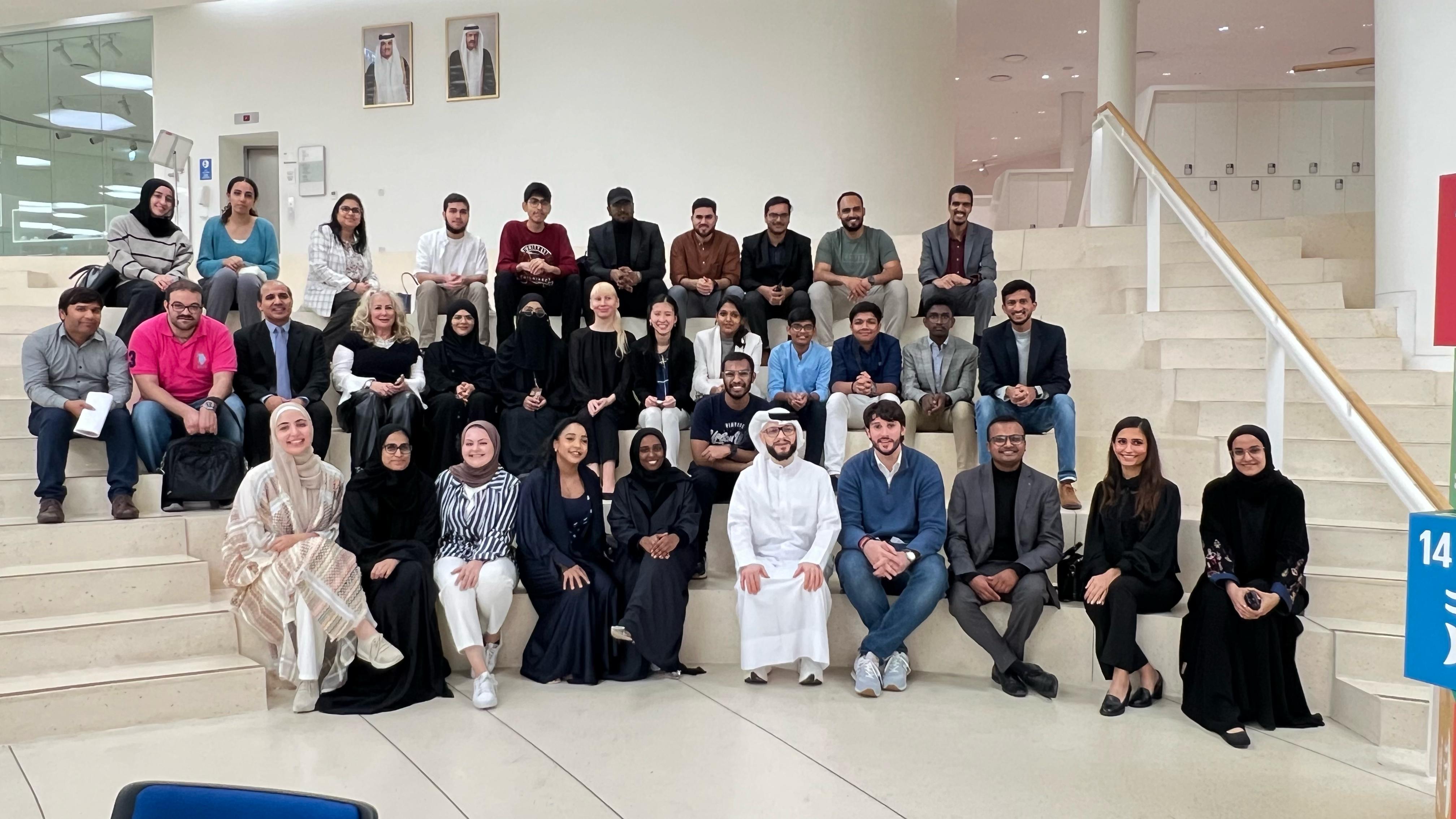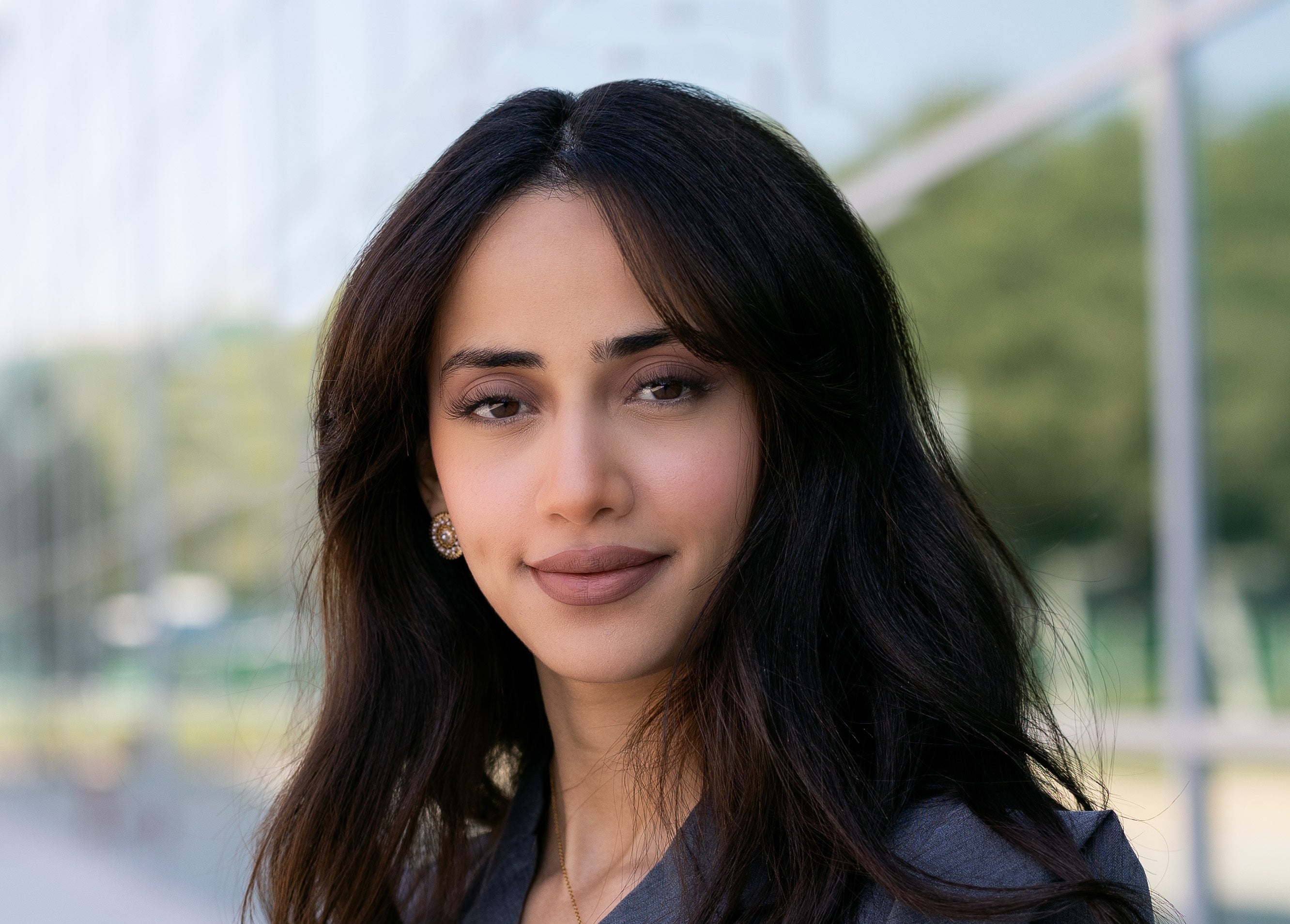
New and Returning Faculty Members Enrich HBKU’s Expanding Academic Community
HBKU is offering eight new academic programs this year across various disciplines
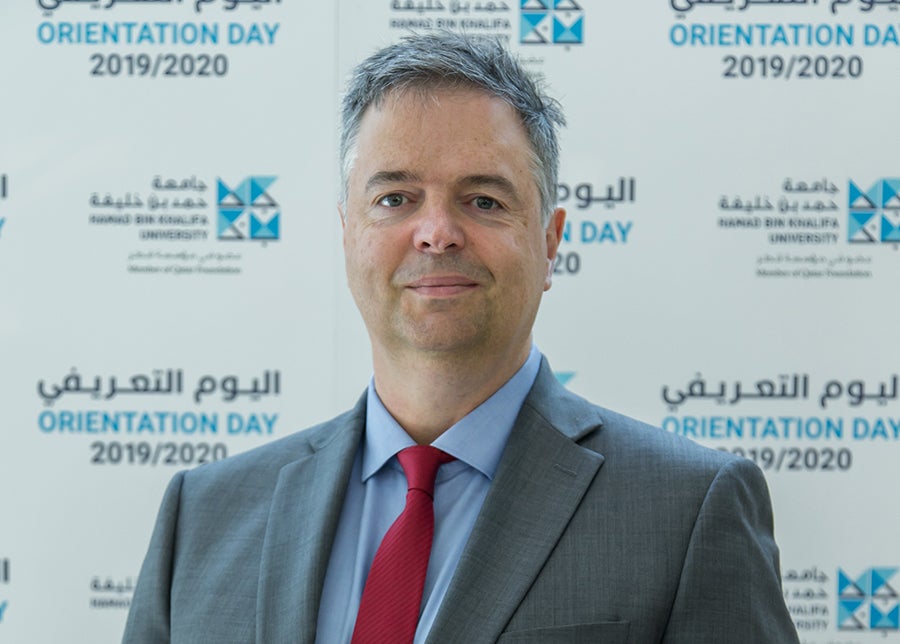
Since opening its doors in 2010, Hamad Bin Khalifa University (HBKU) in Qatar has been committed to the development of a diversified and interdisciplinary portfolio of innovative and mission-driven academic and research activities. Due to its continued efforts, the university has successfully established six world-class colleges and three research institutes in less than a decade. The wide range of programs offered at HBKU focus on building an innovative research and teaching environment, which along with training the next generation of researchers and scientists, also attracts renowned faculty and internationally-recognized leaders.
In recent years, HBKU has continued to draw exceptional academic staff with global experience who are committed to scholarly excellence and focused on developing solutions to address problems faced by Qatar and the world. This year once again, several new faculty members from diverse academic backgrounds will be joining different colleges across HBKU.
Dr. Andreas Rechkemmer is a professor and program director for the Master of Public Policy (MPP) program, which receives its first cohort after HBKU launched the College of Public Policy (CPP) this fall. He remarked: “It is a distinct honor and privilege to join HBKU’s new College of Public Policy as a member of its founding faculty. Public policy is an equally fascinating and crucial field of study and inquiry in today’s world of complexity and interdependence in the public space. Public administration and management, agency service delivery, advanced policy formulation and implementation, foreign and international service and non-profit management, all benefit greatly from evidence-based skill development and practice in areas such as policy analysis, design and evaluation, ethics, economics, statistics or comparative and global studies.
“Our program focuses on interdisciplinary and problem-based approaches and toolsets to effectively address grand challenges such as social, family and health issues, migration, or climate, energy and broader sustainability challenges. We look forward to providing excellence in training for qualified graduate students from Qatar and abroad.”
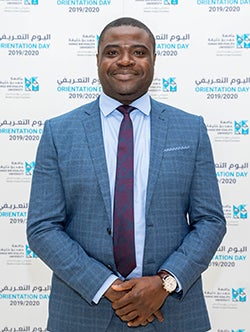 For its part, HBKU College of Law (CL) is rolling out two new programs: the LLM in International Law and Foreign Affairs, and LLM in International Economic and Business Law. Commenting on the significance of these programs, Dr. Damilola S. Olawuyi, associate professor and chair of graduate programs at CL, said: “Our new programs have been carefully designed to empower students with analytical and comparative legal skills needed to understand the diverse legal systems – civil, common and Sharia – that govern complex events and transactions, both in the region and globally. At the end of the program, our students will be ready to become global leaders in various career paths. With world-class faculty of exceptional depth and diversity, HBKU CL is an extraordinary place to study law. The extensive course offerings will allow students to acquire deep specializations in areas that are of great significance for Qatar, the region, and the world. Students will also be encouraged to explore their own research ideas related to their topics that can advance the human development goals of the Qatar National Vision 2030. I cannot imagine a better group of students to launch the LLM programs.”
For its part, HBKU College of Law (CL) is rolling out two new programs: the LLM in International Law and Foreign Affairs, and LLM in International Economic and Business Law. Commenting on the significance of these programs, Dr. Damilola S. Olawuyi, associate professor and chair of graduate programs at CL, said: “Our new programs have been carefully designed to empower students with analytical and comparative legal skills needed to understand the diverse legal systems – civil, common and Sharia – that govern complex events and transactions, both in the region and globally. At the end of the program, our students will be ready to become global leaders in various career paths. With world-class faculty of exceptional depth and diversity, HBKU CL is an extraordinary place to study law. The extensive course offerings will allow students to acquire deep specializations in areas that are of great significance for Qatar, the region, and the world. Students will also be encouraged to explore their own research ideas related to their topics that can advance the human development goals of the Qatar National Vision 2030. I cannot imagine a better group of students to launch the LLM programs.”
Similarly, HBKU’s College of Humanities and Social Sciences (CHSS) is preparing to welcome the inaugural batch to its PhD in Humanities and Social Sciences program. Dr. Steven Wright, associate dean and associate professor at CHSS, explained that the new PhD program received several applications from highly qualified prospective students which made the selection procedure quite difficult.
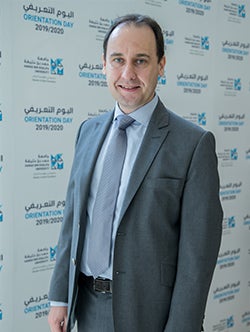
“With a diverse range of topics that the admitted students are seeking to focus on, we are very optimistic that they will innovate, discover, and offer new perspectives on a wide range of contemporary issues. A significant number of our students are bringing valuable professional experience with them and will be engaging on topics that relate specifically to Qatar’s social, political, cultural, and professional needs, and therefore help us achieve our goal of achieving relevant research and education, which is guided by, and aligned to, the needs of Qatar,” Dr. Wright explained.
“Our aspirations for this semester are that we will draw from expertise not only within Education City, and more broadly within Qatar to enrich our students’ interdisciplinary perspectives, but we will be engaging with a network of leading scholars globally to ensure that the education and research environment that we provide allows our students to have a truly rewarding experience,” Dr. Wright added.
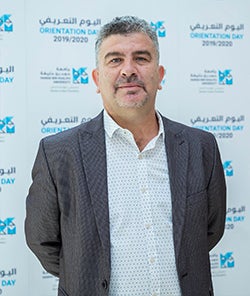 Two new programs have been launched by the College of Science and Engineering (CSE): the Master of Science in Sport and Entertainment Management (MSEM) and Master of Information Systems in Health Management (MISHM). Dr. Amine Bermak, a professor at CSE, said: “The MSEM aims to train the next generation of experts in sports management and is in line with the aspirations of the Qatar National Vision 2030, which emphasizes human and economic development. Sport will certainly help build and sustain an active and healthy society as it can help Qatar diversify its carbon-based economy and develop it as a regional and global sport hub. Whereas, the MISHM responds to an ever-increasing reliance on IT in healthcare with a fast deployment of computers and information systems in healthcare sector that is projected to exponentially grow soon.
Two new programs have been launched by the College of Science and Engineering (CSE): the Master of Science in Sport and Entertainment Management (MSEM) and Master of Information Systems in Health Management (MISHM). Dr. Amine Bermak, a professor at CSE, said: “The MSEM aims to train the next generation of experts in sports management and is in line with the aspirations of the Qatar National Vision 2030, which emphasizes human and economic development. Sport will certainly help build and sustain an active and healthy society as it can help Qatar diversify its carbon-based economy and develop it as a regional and global sport hub. Whereas, the MISHM responds to an ever-increasing reliance on IT in healthcare with a fast deployment of computers and information systems in healthcare sector that is projected to exponentially grow soon.
“Qatar in particular, and the world have witnessed a rapid digitization of health records and the implementation of digital-based data collection and storage systems leading to major e-health development. The MISHM’s program objective is to train skilled healthcare experts in e-health and enterprise system technologies. Both these programs offer students an education path that provides them with advanced knowledge and develops their critical and independent reasoning skills.”
More than 60 faculty members currently work across six colleges and three research institutes to advance HBKU’s remit of delivering a globally relevant educational experience. The university draws on in-house expertise to advance graduate-level education, and continue to be recognized as a knowledge hub within Education City, the State of Qatar, and beyond.
Related News
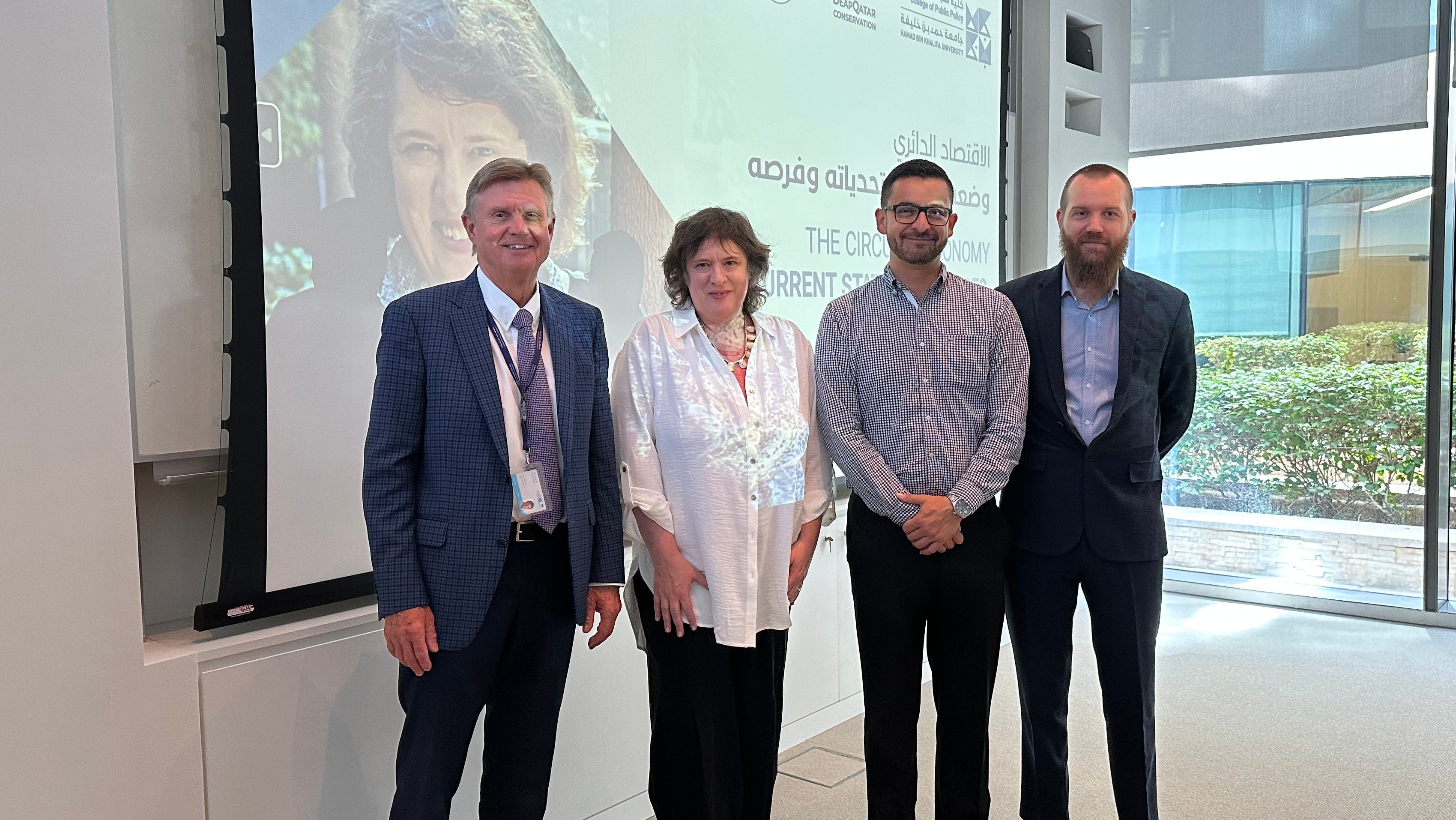
CPP, US Embassy in Doha, and DeapQatar Conservation Co-Host Circular Economy Lecture

HBKU’s College of Public Policy Invites Global Academics and Experts for Conference on Rebuilding Higher Education in Gaza
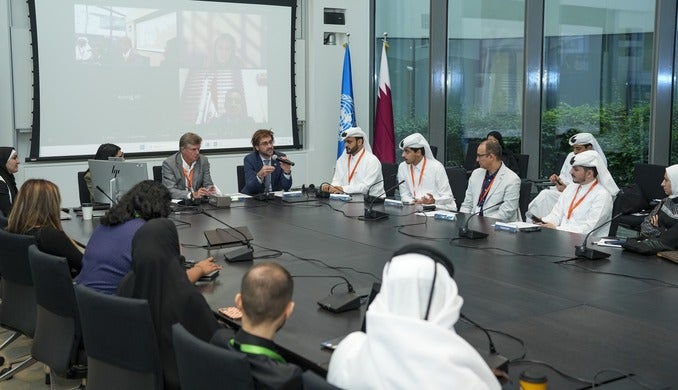
The United Nations Office of Counter-Terrorism and Leading Universities in Qatar Launch the Doha Youth Parliamentary Forum
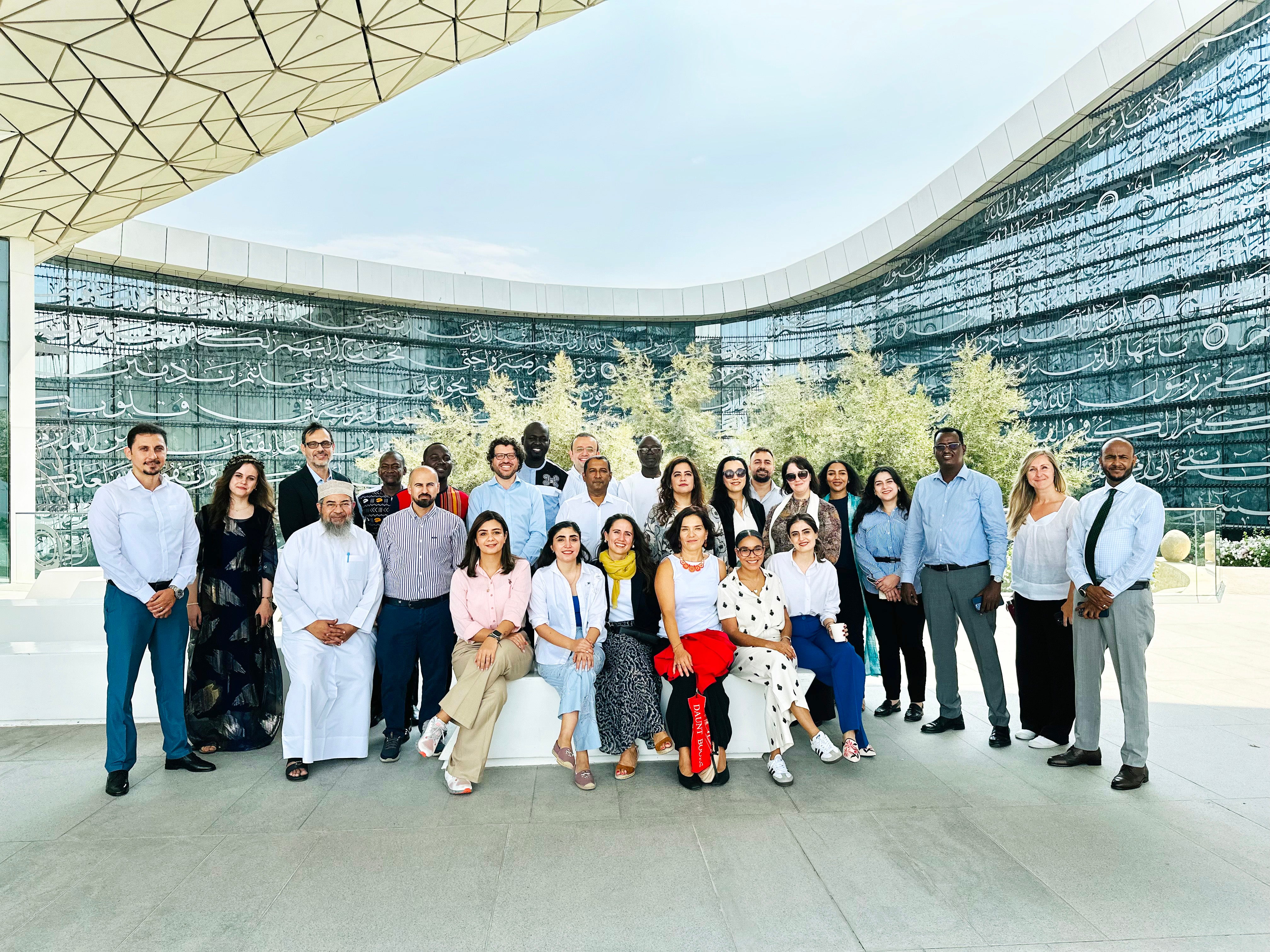
HBKU’s CPP and Geneva Graduate Institute Launch 2024-2025 Executive Programs in Development Policies and Practices
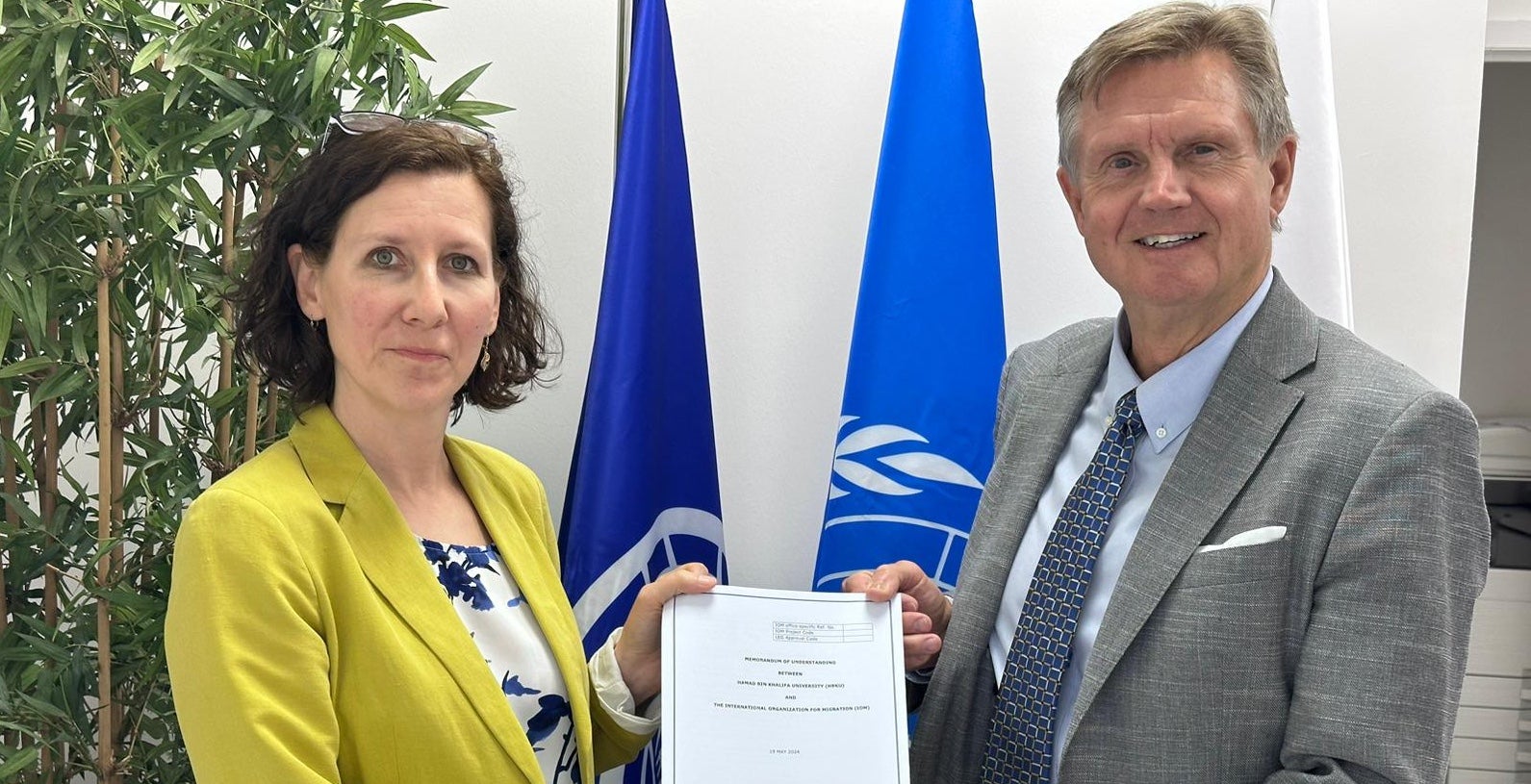
HBKU’s CPP Celebrates #TogetherinQatar Awards Ceremony after Signing MoU with the International Organization for Migration
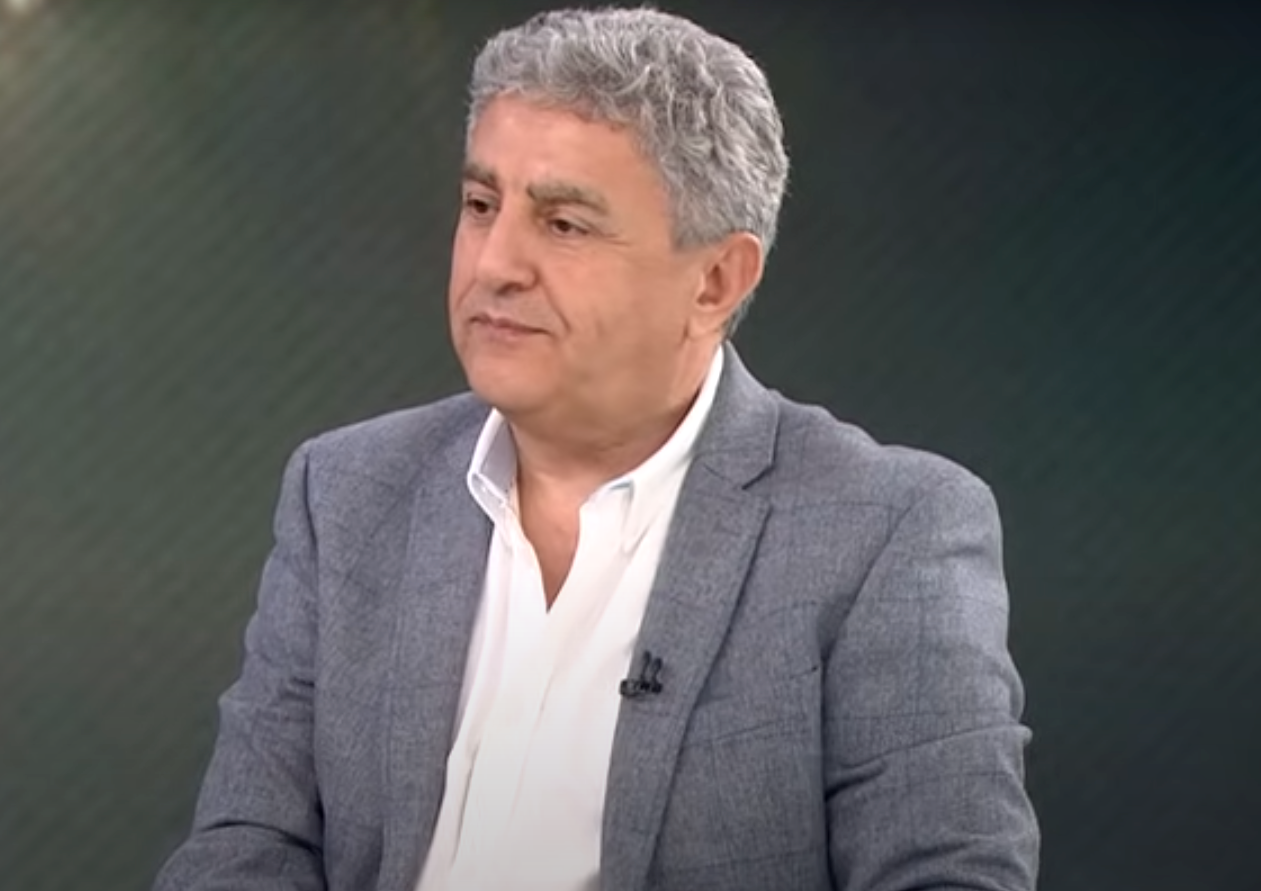
HBKU Professor Advises Global Policymakers on the Challenge of Engagement with the Taliban’s De-Facto Government
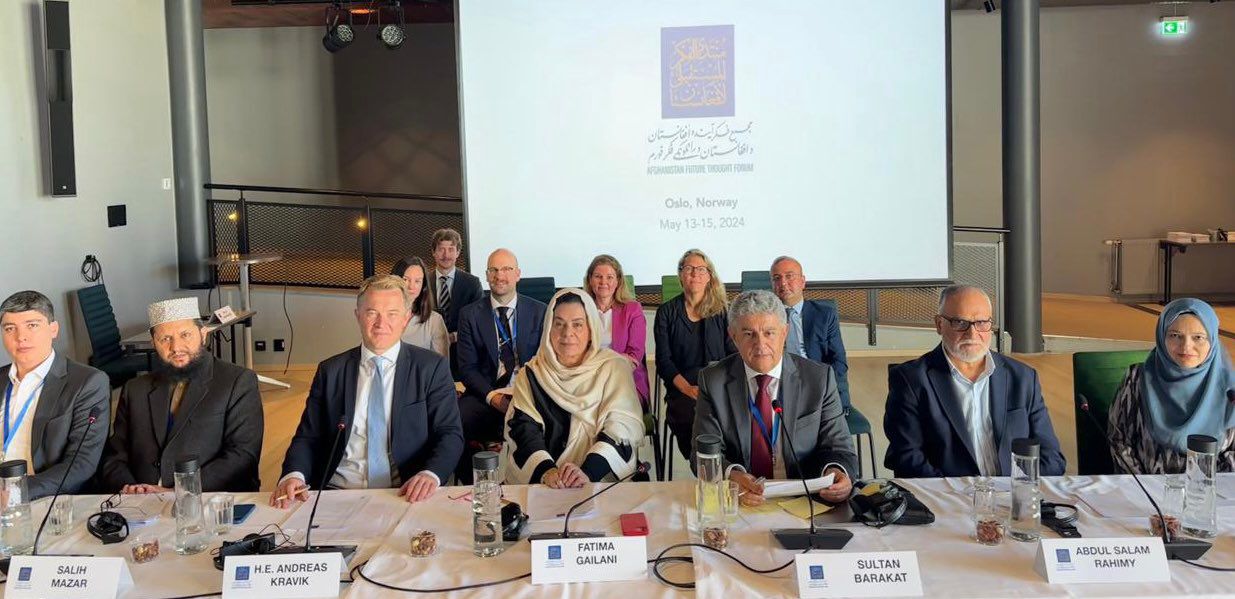
HBKU’s College of Public Policy Convenes the Ninth Session of the Afghanistan Future Thought Forum
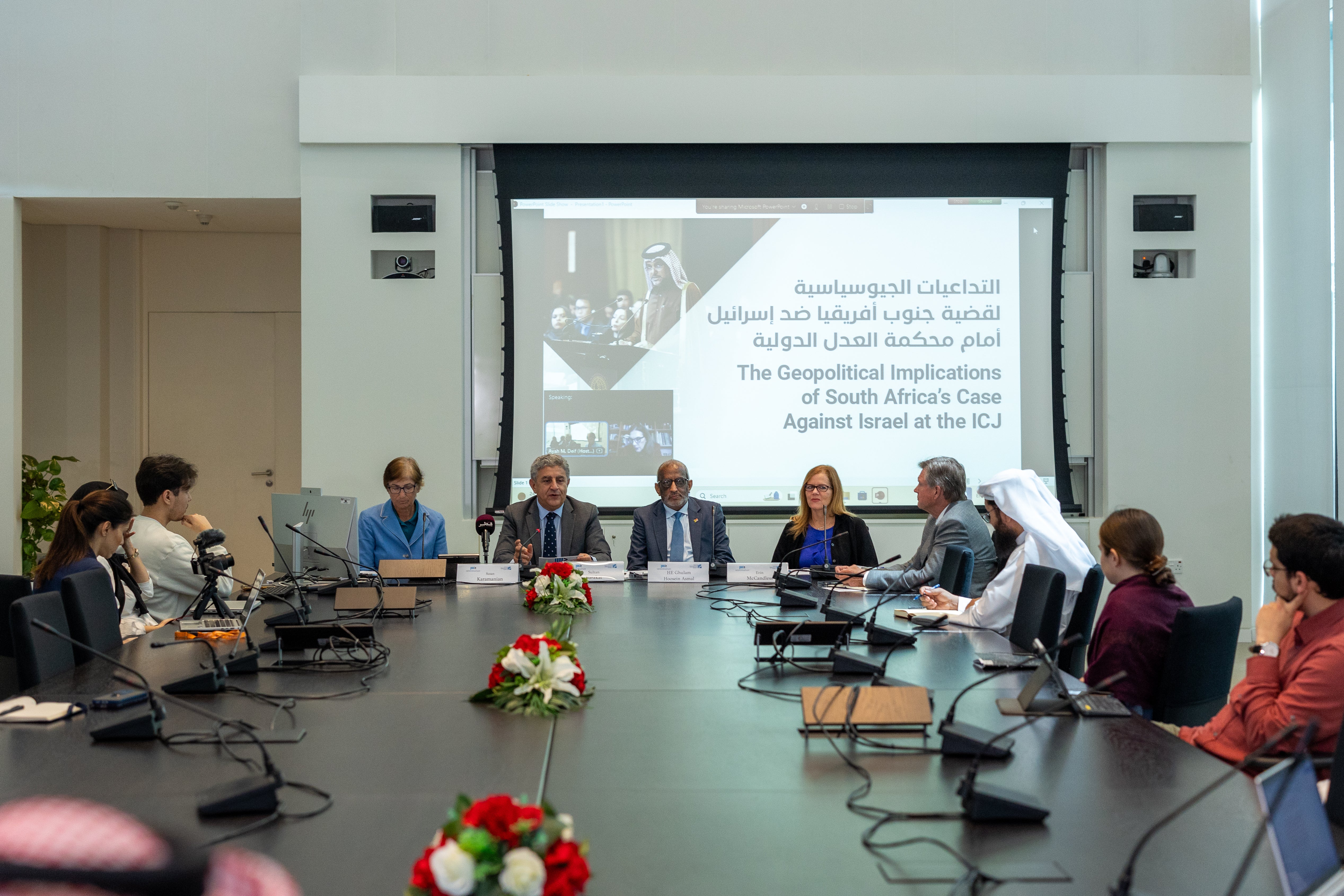
GISR Panel Analyzes Geopolitical Implications of South Africa’s Case against Israel at the ICJ
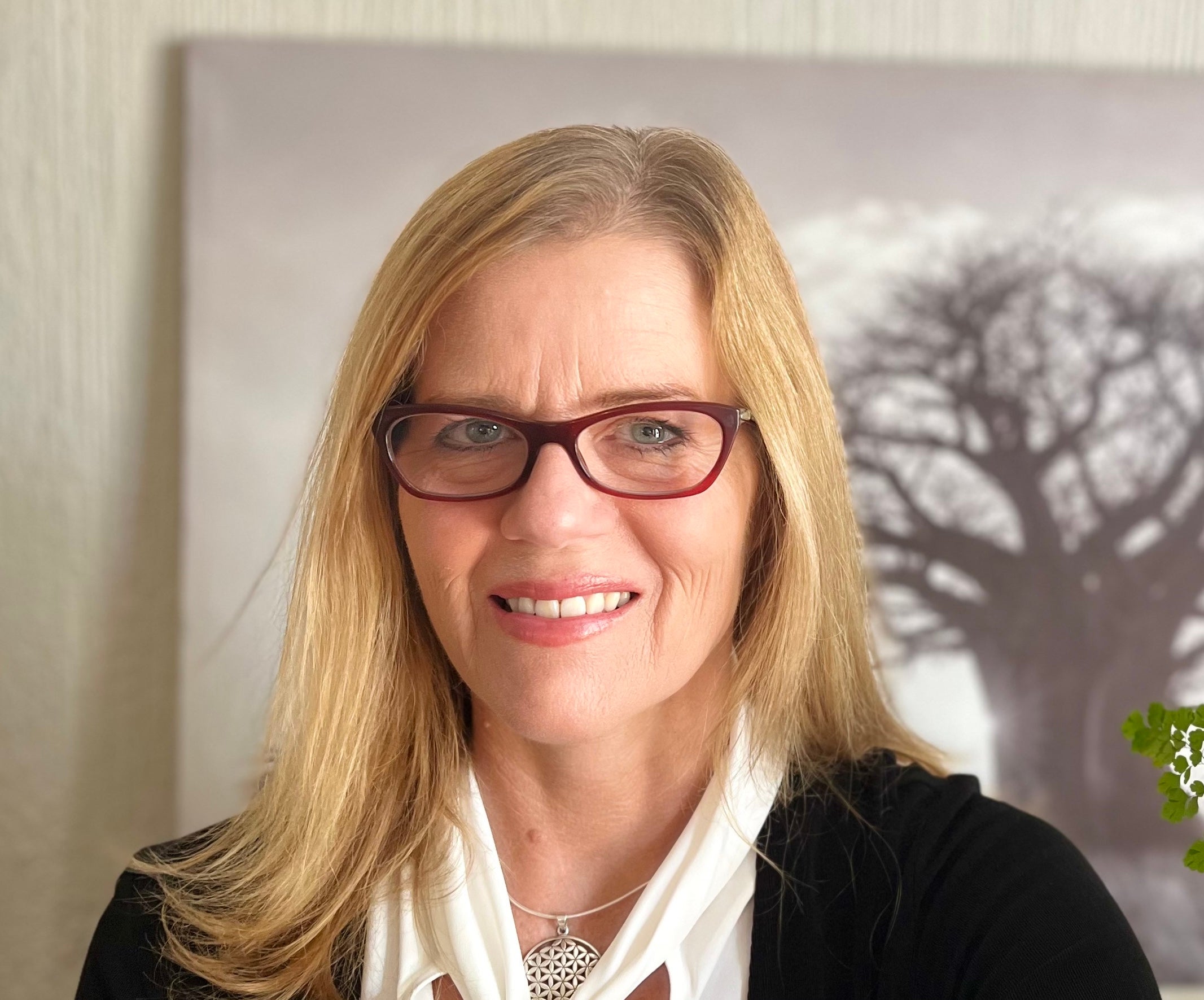
CPP Welcomes Erin McCandless as Distinguished Visiting Professor of Public Value

CPP, US Embassy in Doha, and DeapQatar Conservation Co-Host Circular Economy Lecture

HBKU’s College of Public Policy Invites Global Academics and Experts for Conference on Rebuilding Higher Education in Gaza

The United Nations Office of Counter-Terrorism and Leading Universities in Qatar Launch the Doha Youth Parliamentary Forum

HBKU’s CPP and Geneva Graduate Institute Launch 2024-2025 Executive Programs in Development Policies and Practices

HBKU’s CPP Celebrates #TogetherinQatar Awards Ceremony after Signing MoU with the International Organization for Migration

HBKU Professor Advises Global Policymakers on the Challenge of Engagement with the Taliban’s De-Facto Government

HBKU’s College of Public Policy Convenes the Ninth Session of the Afghanistan Future Thought Forum

GISR Panel Analyzes Geopolitical Implications of South Africa’s Case against Israel at the ICJ

CPP Welcomes Erin McCandless as Distinguished Visiting Professor of Public Value

CPP, US Embassy in Doha, and DeapQatar Conservation Co-Host Circular Economy Lecture

HBKU’s College of Public Policy Invites Global Academics and Experts for Conference on Rebuilding Higher Education in Gaza

The United Nations Office of Counter-Terrorism and Leading Universities in Qatar Launch the Doha Youth Parliamentary Forum

HBKU’s CPP and Geneva Graduate Institute Launch 2024-2025 Executive Programs in Development Policies and Practices

HBKU’s CPP Celebrates #TogetherinQatar Awards Ceremony after Signing MoU with the International Organization for Migration

HBKU Professor Advises Global Policymakers on the Challenge of Engagement with the Taliban’s De-Facto Government

HBKU’s College of Public Policy Convenes the Ninth Session of the Afghanistan Future Thought Forum

GISR Panel Analyzes Geopolitical Implications of South Africa’s Case against Israel at the ICJ

CPP Welcomes Erin McCandless as Distinguished Visiting Professor of Public Value

CPP, US Embassy in Doha, and DeapQatar Conservation Co-Host Circular Economy Lecture

HBKU’s College of Public Policy Invites Global Academics and Experts for Conference on Rebuilding Higher Education in Gaza

The United Nations Office of Counter-Terrorism and Leading Universities in Qatar Launch the Doha Youth Parliamentary Forum

HBKU’s CPP and Geneva Graduate Institute Launch 2024-2025 Executive Programs in Development Policies and Practices

HBKU’s CPP Celebrates #TogetherinQatar Awards Ceremony after Signing MoU with the International Organization for Migration

HBKU Professor Advises Global Policymakers on the Challenge of Engagement with the Taliban’s De-Facto Government

HBKU’s College of Public Policy Convenes the Ninth Session of the Afghanistan Future Thought Forum

GISR Panel Analyzes Geopolitical Implications of South Africa’s Case against Israel at the ICJ

CPP Welcomes Erin McCandless as Distinguished Visiting Professor of Public Value

CPP, US Embassy in Doha, and DeapQatar Conservation Co-Host Circular Economy Lecture

HBKU’s College of Public Policy Invites Global Academics and Experts for Conference on Rebuilding Higher Education in Gaza

The United Nations Office of Counter-Terrorism and Leading Universities in Qatar Launch the Doha Youth Parliamentary Forum

HBKU’s CPP and Geneva Graduate Institute Launch 2024-2025 Executive Programs in Development Policies and Practices

HBKU’s CPP Celebrates #TogetherinQatar Awards Ceremony after Signing MoU with the International Organization for Migration

HBKU Professor Advises Global Policymakers on the Challenge of Engagement with the Taliban’s De-Facto Government

HBKU’s College of Public Policy Convenes the Ninth Session of the Afghanistan Future Thought Forum

GISR Panel Analyzes Geopolitical Implications of South Africa’s Case against Israel at the ICJ

CPP Welcomes Erin McCandless as Distinguished Visiting Professor of Public Value

CPP, US Embassy in Doha, and DeapQatar Conservation Co-Host Circular Economy Lecture

HBKU’s College of Public Policy Invites Global Academics and Experts for Conference on Rebuilding Higher Education in Gaza

The United Nations Office of Counter-Terrorism and Leading Universities in Qatar Launch the Doha Youth Parliamentary Forum

HBKU’s CPP and Geneva Graduate Institute Launch 2024-2025 Executive Programs in Development Policies and Practices

HBKU’s CPP Celebrates #TogetherinQatar Awards Ceremony after Signing MoU with the International Organization for Migration

HBKU Professor Advises Global Policymakers on the Challenge of Engagement with the Taliban’s De-Facto Government

HBKU’s College of Public Policy Convenes the Ninth Session of the Afghanistan Future Thought Forum

GISR Panel Analyzes Geopolitical Implications of South Africa’s Case against Israel at the ICJ

CPP Welcomes Erin McCandless as Distinguished Visiting Professor of Public Value

CPP, US Embassy in Doha, and DeapQatar Conservation Co-Host Circular Economy Lecture

HBKU’s College of Public Policy Invites Global Academics and Experts for Conference on Rebuilding Higher Education in Gaza

The United Nations Office of Counter-Terrorism and Leading Universities in Qatar Launch the Doha Youth Parliamentary Forum

HBKU’s CPP and Geneva Graduate Institute Launch 2024-2025 Executive Programs in Development Policies and Practices

HBKU’s CPP Celebrates #TogetherinQatar Awards Ceremony after Signing MoU with the International Organization for Migration

HBKU Professor Advises Global Policymakers on the Challenge of Engagement with the Taliban’s De-Facto Government

HBKU’s College of Public Policy Convenes the Ninth Session of the Afghanistan Future Thought Forum

GISR Panel Analyzes Geopolitical Implications of South Africa’s Case against Israel at the ICJ

CPP Welcomes Erin McCandless as Distinguished Visiting Professor of Public Value

CPP, US Embassy in Doha, and DeapQatar Conservation Co-Host Circular Economy Lecture

HBKU’s College of Public Policy Invites Global Academics and Experts for Conference on Rebuilding Higher Education in Gaza

The United Nations Office of Counter-Terrorism and Leading Universities in Qatar Launch the Doha Youth Parliamentary Forum

HBKU’s CPP and Geneva Graduate Institute Launch 2024-2025 Executive Programs in Development Policies and Practices

HBKU’s CPP Celebrates #TogetherinQatar Awards Ceremony after Signing MoU with the International Organization for Migration

HBKU Professor Advises Global Policymakers on the Challenge of Engagement with the Taliban’s De-Facto Government

HBKU’s College of Public Policy Convenes the Ninth Session of the Afghanistan Future Thought Forum

GISR Panel Analyzes Geopolitical Implications of South Africa’s Case against Israel at the ICJ

CPP Welcomes Erin McCandless as Distinguished Visiting Professor of Public Value

CPP, US Embassy in Doha, and DeapQatar Conservation Co-Host Circular Economy Lecture

HBKU’s College of Public Policy Invites Global Academics and Experts for Conference on Rebuilding Higher Education in Gaza

The United Nations Office of Counter-Terrorism and Leading Universities in Qatar Launch the Doha Youth Parliamentary Forum

HBKU’s CPP and Geneva Graduate Institute Launch 2024-2025 Executive Programs in Development Policies and Practices

HBKU’s CPP Celebrates #TogetherinQatar Awards Ceremony after Signing MoU with the International Organization for Migration

HBKU Professor Advises Global Policymakers on the Challenge of Engagement with the Taliban’s De-Facto Government

HBKU’s College of Public Policy Convenes the Ninth Session of the Afghanistan Future Thought Forum

GISR Panel Analyzes Geopolitical Implications of South Africa’s Case against Israel at the ICJ

CPP Welcomes Erin McCandless as Distinguished Visiting Professor of Public Value

CPP, US Embassy in Doha, and DeapQatar Conservation Co-Host Circular Economy Lecture

HBKU’s College of Public Policy Invites Global Academics and Experts for Conference on Rebuilding Higher Education in Gaza

The United Nations Office of Counter-Terrorism and Leading Universities in Qatar Launch the Doha Youth Parliamentary Forum

HBKU’s CPP and Geneva Graduate Institute Launch 2024-2025 Executive Programs in Development Policies and Practices

HBKU’s CPP Celebrates #TogetherinQatar Awards Ceremony after Signing MoU with the International Organization for Migration

HBKU Professor Advises Global Policymakers on the Challenge of Engagement with the Taliban’s De-Facto Government

HBKU’s College of Public Policy Convenes the Ninth Session of the Afghanistan Future Thought Forum

GISR Panel Analyzes Geopolitical Implications of South Africa’s Case against Israel at the ICJ

CPP Welcomes Erin McCandless as Distinguished Visiting Professor of Public Value

CPP, US Embassy in Doha, and DeapQatar Conservation Co-Host Circular Economy Lecture

HBKU’s College of Public Policy Invites Global Academics and Experts for Conference on Rebuilding Higher Education in Gaza

The United Nations Office of Counter-Terrorism and Leading Universities in Qatar Launch the Doha Youth Parliamentary Forum

HBKU’s CPP and Geneva Graduate Institute Launch 2024-2025 Executive Programs in Development Policies and Practices

HBKU’s CPP Celebrates #TogetherinQatar Awards Ceremony after Signing MoU with the International Organization for Migration

HBKU Professor Advises Global Policymakers on the Challenge of Engagement with the Taliban’s De-Facto Government

HBKU’s College of Public Policy Convenes the Ninth Session of the Afghanistan Future Thought Forum

GISR Panel Analyzes Geopolitical Implications of South Africa’s Case against Israel at the ICJ

CPP Welcomes Erin McCandless as Distinguished Visiting Professor of Public Value

CPP, US Embassy in Doha, and DeapQatar Conservation Co-Host Circular Economy Lecture

HBKU’s College of Public Policy Invites Global Academics and Experts for Conference on Rebuilding Higher Education in Gaza

The United Nations Office of Counter-Terrorism and Leading Universities in Qatar Launch the Doha Youth Parliamentary Forum

HBKU’s CPP and Geneva Graduate Institute Launch 2024-2025 Executive Programs in Development Policies and Practices

HBKU’s CPP Celebrates #TogetherinQatar Awards Ceremony after Signing MoU with the International Organization for Migration

HBKU Professor Advises Global Policymakers on the Challenge of Engagement with the Taliban’s De-Facto Government

HBKU’s College of Public Policy Convenes the Ninth Session of the Afghanistan Future Thought Forum

GISR Panel Analyzes Geopolitical Implications of South Africa’s Case against Israel at the ICJ

CPP Welcomes Erin McCandless as Distinguished Visiting Professor of Public Value

CPP, US Embassy in Doha, and DeapQatar Conservation Co-Host Circular Economy Lecture

HBKU’s College of Public Policy Invites Global Academics and Experts for Conference on Rebuilding Higher Education in Gaza

The United Nations Office of Counter-Terrorism and Leading Universities in Qatar Launch the Doha Youth Parliamentary Forum

HBKU’s CPP and Geneva Graduate Institute Launch 2024-2025 Executive Programs in Development Policies and Practices

HBKU’s CPP Celebrates #TogetherinQatar Awards Ceremony after Signing MoU with the International Organization for Migration

HBKU Professor Advises Global Policymakers on the Challenge of Engagement with the Taliban’s De-Facto Government

HBKU’s College of Public Policy Convenes the Ninth Session of the Afghanistan Future Thought Forum

GISR Panel Analyzes Geopolitical Implications of South Africa’s Case against Israel at the ICJ

CPP Welcomes Erin McCandless as Distinguished Visiting Professor of Public Value

CPP, US Embassy in Doha, and DeapQatar Conservation Co-Host Circular Economy Lecture

HBKU’s College of Public Policy Invites Global Academics and Experts for Conference on Rebuilding Higher Education in Gaza

The United Nations Office of Counter-Terrorism and Leading Universities in Qatar Launch the Doha Youth Parliamentary Forum

HBKU’s CPP and Geneva Graduate Institute Launch 2024-2025 Executive Programs in Development Policies and Practices

HBKU’s CPP Celebrates #TogetherinQatar Awards Ceremony after Signing MoU with the International Organization for Migration

HBKU Professor Advises Global Policymakers on the Challenge of Engagement with the Taliban’s De-Facto Government

HBKU’s College of Public Policy Convenes the Ninth Session of the Afghanistan Future Thought Forum

GISR Panel Analyzes Geopolitical Implications of South Africa’s Case against Israel at the ICJ

CPP Welcomes Erin McCandless as Distinguished Visiting Professor of Public Value

CPP, US Embassy in Doha, and DeapQatar Conservation Co-Host Circular Economy Lecture

HBKU’s College of Public Policy Invites Global Academics and Experts for Conference on Rebuilding Higher Education in Gaza

The United Nations Office of Counter-Terrorism and Leading Universities in Qatar Launch the Doha Youth Parliamentary Forum

HBKU’s CPP and Geneva Graduate Institute Launch 2024-2025 Executive Programs in Development Policies and Practices

HBKU’s CPP Celebrates #TogetherinQatar Awards Ceremony after Signing MoU with the International Organization for Migration

HBKU Professor Advises Global Policymakers on the Challenge of Engagement with the Taliban’s De-Facto Government

HBKU’s College of Public Policy Convenes the Ninth Session of the Afghanistan Future Thought Forum

GISR Panel Analyzes Geopolitical Implications of South Africa’s Case against Israel at the ICJ

CPP Welcomes Erin McCandless as Distinguished Visiting Professor of Public Value

CPP, US Embassy in Doha, and DeapQatar Conservation Co-Host Circular Economy Lecture

HBKU’s College of Public Policy Invites Global Academics and Experts for Conference on Rebuilding Higher Education in Gaza

The United Nations Office of Counter-Terrorism and Leading Universities in Qatar Launch the Doha Youth Parliamentary Forum

HBKU’s CPP and Geneva Graduate Institute Launch 2024-2025 Executive Programs in Development Policies and Practices

HBKU’s CPP Celebrates #TogetherinQatar Awards Ceremony after Signing MoU with the International Organization for Migration

HBKU Professor Advises Global Policymakers on the Challenge of Engagement with the Taliban’s De-Facto Government

HBKU’s College of Public Policy Convenes the Ninth Session of the Afghanistan Future Thought Forum

GISR Panel Analyzes Geopolitical Implications of South Africa’s Case against Israel at the ICJ

CPP Welcomes Erin McCandless as Distinguished Visiting Professor of Public Value

CPP, US Embassy in Doha, and DeapQatar Conservation Co-Host Circular Economy Lecture

HBKU’s College of Public Policy Invites Global Academics and Experts for Conference on Rebuilding Higher Education in Gaza

The United Nations Office of Counter-Terrorism and Leading Universities in Qatar Launch the Doha Youth Parliamentary Forum

HBKU’s CPP and Geneva Graduate Institute Launch 2024-2025 Executive Programs in Development Policies and Practices

HBKU’s CPP Celebrates #TogetherinQatar Awards Ceremony after Signing MoU with the International Organization for Migration

HBKU Professor Advises Global Policymakers on the Challenge of Engagement with the Taliban’s De-Facto Government

HBKU’s College of Public Policy Convenes the Ninth Session of the Afghanistan Future Thought Forum

GISR Panel Analyzes Geopolitical Implications of South Africa’s Case against Israel at the ICJ

CPP Welcomes Erin McCandless as Distinguished Visiting Professor of Public Value

CPP, US Embassy in Doha, and DeapQatar Conservation Co-Host Circular Economy Lecture

HBKU’s College of Public Policy Invites Global Academics and Experts for Conference on Rebuilding Higher Education in Gaza

The United Nations Office of Counter-Terrorism and Leading Universities in Qatar Launch the Doha Youth Parliamentary Forum

HBKU’s CPP and Geneva Graduate Institute Launch 2024-2025 Executive Programs in Development Policies and Practices

HBKU’s CPP Celebrates #TogetherinQatar Awards Ceremony after Signing MoU with the International Organization for Migration

HBKU Professor Advises Global Policymakers on the Challenge of Engagement with the Taliban’s De-Facto Government

HBKU’s College of Public Policy Convenes the Ninth Session of the Afghanistan Future Thought Forum

GISR Panel Analyzes Geopolitical Implications of South Africa’s Case against Israel at the ICJ

CPP Welcomes Erin McCandless as Distinguished Visiting Professor of Public Value

CPP, US Embassy in Doha, and DeapQatar Conservation Co-Host Circular Economy Lecture

HBKU’s College of Public Policy Invites Global Academics and Experts for Conference on Rebuilding Higher Education in Gaza

The United Nations Office of Counter-Terrorism and Leading Universities in Qatar Launch the Doha Youth Parliamentary Forum

HBKU’s CPP and Geneva Graduate Institute Launch 2024-2025 Executive Programs in Development Policies and Practices

HBKU’s CPP Celebrates #TogetherinQatar Awards Ceremony after Signing MoU with the International Organization for Migration

HBKU Professor Advises Global Policymakers on the Challenge of Engagement with the Taliban’s De-Facto Government

HBKU’s College of Public Policy Convenes the Ninth Session of the Afghanistan Future Thought Forum

GISR Panel Analyzes Geopolitical Implications of South Africa’s Case against Israel at the ICJ

CPP Welcomes Erin McCandless as Distinguished Visiting Professor of Public Value

CPP, US Embassy in Doha, and DeapQatar Conservation Co-Host Circular Economy Lecture

HBKU’s College of Public Policy Invites Global Academics and Experts for Conference on Rebuilding Higher Education in Gaza

The United Nations Office of Counter-Terrorism and Leading Universities in Qatar Launch the Doha Youth Parliamentary Forum

HBKU’s CPP and Geneva Graduate Institute Launch 2024-2025 Executive Programs in Development Policies and Practices

HBKU’s CPP Celebrates #TogetherinQatar Awards Ceremony after Signing MoU with the International Organization for Migration

HBKU Professor Advises Global Policymakers on the Challenge of Engagement with the Taliban’s De-Facto Government

HBKU’s College of Public Policy Convenes the Ninth Session of the Afghanistan Future Thought Forum

GISR Panel Analyzes Geopolitical Implications of South Africa’s Case against Israel at the ICJ

CPP Welcomes Erin McCandless as Distinguished Visiting Professor of Public Value

CPP, US Embassy in Doha, and DeapQatar Conservation Co-Host Circular Economy Lecture

HBKU’s College of Public Policy Invites Global Academics and Experts for Conference on Rebuilding Higher Education in Gaza

The United Nations Office of Counter-Terrorism and Leading Universities in Qatar Launch the Doha Youth Parliamentary Forum

HBKU’s CPP and Geneva Graduate Institute Launch 2024-2025 Executive Programs in Development Policies and Practices

HBKU’s CPP Celebrates #TogetherinQatar Awards Ceremony after Signing MoU with the International Organization for Migration

HBKU Professor Advises Global Policymakers on the Challenge of Engagement with the Taliban’s De-Facto Government

HBKU’s College of Public Policy Convenes the Ninth Session of the Afghanistan Future Thought Forum

GISR Panel Analyzes Geopolitical Implications of South Africa’s Case against Israel at the ICJ

CPP Welcomes Erin McCandless as Distinguished Visiting Professor of Public Value

CPP, US Embassy in Doha, and DeapQatar Conservation Co-Host Circular Economy Lecture

HBKU’s College of Public Policy Invites Global Academics and Experts for Conference on Rebuilding Higher Education in Gaza

The United Nations Office of Counter-Terrorism and Leading Universities in Qatar Launch the Doha Youth Parliamentary Forum

HBKU’s CPP and Geneva Graduate Institute Launch 2024-2025 Executive Programs in Development Policies and Practices

HBKU’s CPP Celebrates #TogetherinQatar Awards Ceremony after Signing MoU with the International Organization for Migration

HBKU Professor Advises Global Policymakers on the Challenge of Engagement with the Taliban’s De-Facto Government

HBKU’s College of Public Policy Convenes the Ninth Session of the Afghanistan Future Thought Forum

GISR Panel Analyzes Geopolitical Implications of South Africa’s Case against Israel at the ICJ

CPP Welcomes Erin McCandless as Distinguished Visiting Professor of Public Value

CPP, US Embassy in Doha, and DeapQatar Conservation Co-Host Circular Economy Lecture

HBKU’s College of Public Policy Invites Global Academics and Experts for Conference on Rebuilding Higher Education in Gaza

The United Nations Office of Counter-Terrorism and Leading Universities in Qatar Launch the Doha Youth Parliamentary Forum

HBKU’s CPP and Geneva Graduate Institute Launch 2024-2025 Executive Programs in Development Policies and Practices

HBKU’s CPP Celebrates #TogetherinQatar Awards Ceremony after Signing MoU with the International Organization for Migration

HBKU Professor Advises Global Policymakers on the Challenge of Engagement with the Taliban’s De-Facto Government

HBKU’s College of Public Policy Convenes the Ninth Session of the Afghanistan Future Thought Forum

GISR Panel Analyzes Geopolitical Implications of South Africa’s Case against Israel at the ICJ

CPP Welcomes Erin McCandless as Distinguished Visiting Professor of Public Value

CPP, US Embassy in Doha, and DeapQatar Conservation Co-Host Circular Economy Lecture

HBKU’s College of Public Policy Invites Global Academics and Experts for Conference on Rebuilding Higher Education in Gaza

The United Nations Office of Counter-Terrorism and Leading Universities in Qatar Launch the Doha Youth Parliamentary Forum

HBKU’s CPP and Geneva Graduate Institute Launch 2024-2025 Executive Programs in Development Policies and Practices

HBKU’s CPP Celebrates #TogetherinQatar Awards Ceremony after Signing MoU with the International Organization for Migration

HBKU Professor Advises Global Policymakers on the Challenge of Engagement with the Taliban’s De-Facto Government

HBKU’s College of Public Policy Convenes the Ninth Session of the Afghanistan Future Thought Forum

GISR Panel Analyzes Geopolitical Implications of South Africa’s Case against Israel at the ICJ

CPP Welcomes Erin McCandless as Distinguished Visiting Professor of Public Value

CPP, US Embassy in Doha, and DeapQatar Conservation Co-Host Circular Economy Lecture

HBKU’s College of Public Policy Invites Global Academics and Experts for Conference on Rebuilding Higher Education in Gaza

The United Nations Office of Counter-Terrorism and Leading Universities in Qatar Launch the Doha Youth Parliamentary Forum

HBKU’s CPP and Geneva Graduate Institute Launch 2024-2025 Executive Programs in Development Policies and Practices

HBKU’s CPP Celebrates #TogetherinQatar Awards Ceremony after Signing MoU with the International Organization for Migration

HBKU Professor Advises Global Policymakers on the Challenge of Engagement with the Taliban’s De-Facto Government

HBKU’s College of Public Policy Convenes the Ninth Session of the Afghanistan Future Thought Forum

GISR Panel Analyzes Geopolitical Implications of South Africa’s Case against Israel at the ICJ

CPP Welcomes Erin McCandless as Distinguished Visiting Professor of Public Value

CPP, US Embassy in Doha, and DeapQatar Conservation Co-Host Circular Economy Lecture

HBKU’s College of Public Policy Invites Global Academics and Experts for Conference on Rebuilding Higher Education in Gaza

The United Nations Office of Counter-Terrorism and Leading Universities in Qatar Launch the Doha Youth Parliamentary Forum

HBKU’s CPP and Geneva Graduate Institute Launch 2024-2025 Executive Programs in Development Policies and Practices

HBKU’s CPP Celebrates #TogetherinQatar Awards Ceremony after Signing MoU with the International Organization for Migration

HBKU Professor Advises Global Policymakers on the Challenge of Engagement with the Taliban’s De-Facto Government

HBKU’s College of Public Policy Convenes the Ninth Session of the Afghanistan Future Thought Forum

GISR Panel Analyzes Geopolitical Implications of South Africa’s Case against Israel at the ICJ

CPP Welcomes Erin McCandless as Distinguished Visiting Professor of Public Value

CPP, US Embassy in Doha, and DeapQatar Conservation Co-Host Circular Economy Lecture

HBKU’s College of Public Policy Invites Global Academics and Experts for Conference on Rebuilding Higher Education in Gaza

The United Nations Office of Counter-Terrorism and Leading Universities in Qatar Launch the Doha Youth Parliamentary Forum

HBKU’s CPP and Geneva Graduate Institute Launch 2024-2025 Executive Programs in Development Policies and Practices

HBKU’s CPP Celebrates #TogetherinQatar Awards Ceremony after Signing MoU with the International Organization for Migration

HBKU Professor Advises Global Policymakers on the Challenge of Engagement with the Taliban’s De-Facto Government

HBKU’s College of Public Policy Convenes the Ninth Session of the Afghanistan Future Thought Forum

GISR Panel Analyzes Geopolitical Implications of South Africa’s Case against Israel at the ICJ

CPP Welcomes Erin McCandless as Distinguished Visiting Professor of Public Value

CPP, US Embassy in Doha, and DeapQatar Conservation Co-Host Circular Economy Lecture

HBKU’s College of Public Policy Invites Global Academics and Experts for Conference on Rebuilding Higher Education in Gaza

The United Nations Office of Counter-Terrorism and Leading Universities in Qatar Launch the Doha Youth Parliamentary Forum

HBKU’s CPP and Geneva Graduate Institute Launch 2024-2025 Executive Programs in Development Policies and Practices

HBKU’s CPP Celebrates #TogetherinQatar Awards Ceremony after Signing MoU with the International Organization for Migration

HBKU Professor Advises Global Policymakers on the Challenge of Engagement with the Taliban’s De-Facto Government

HBKU’s College of Public Policy Convenes the Ninth Session of the Afghanistan Future Thought Forum

GISR Panel Analyzes Geopolitical Implications of South Africa’s Case against Israel at the ICJ

CPP Welcomes Erin McCandless as Distinguished Visiting Professor of Public Value

CPP, US Embassy in Doha, and DeapQatar Conservation Co-Host Circular Economy Lecture

HBKU’s College of Public Policy Invites Global Academics and Experts for Conference on Rebuilding Higher Education in Gaza

The United Nations Office of Counter-Terrorism and Leading Universities in Qatar Launch the Doha Youth Parliamentary Forum

HBKU’s CPP and Geneva Graduate Institute Launch 2024-2025 Executive Programs in Development Policies and Practices

HBKU’s CPP Celebrates #TogetherinQatar Awards Ceremony after Signing MoU with the International Organization for Migration

HBKU Professor Advises Global Policymakers on the Challenge of Engagement with the Taliban’s De-Facto Government

HBKU’s College of Public Policy Convenes the Ninth Session of the Afghanistan Future Thought Forum

GISR Panel Analyzes Geopolitical Implications of South Africa’s Case against Israel at the ICJ

CPP Welcomes Erin McCandless as Distinguished Visiting Professor of Public Value

CPP, US Embassy in Doha, and DeapQatar Conservation Co-Host Circular Economy Lecture

HBKU’s College of Public Policy Invites Global Academics and Experts for Conference on Rebuilding Higher Education in Gaza

The United Nations Office of Counter-Terrorism and Leading Universities in Qatar Launch the Doha Youth Parliamentary Forum

HBKU’s CPP and Geneva Graduate Institute Launch 2024-2025 Executive Programs in Development Policies and Practices

HBKU’s CPP Celebrates #TogetherinQatar Awards Ceremony after Signing MoU with the International Organization for Migration

HBKU Professor Advises Global Policymakers on the Challenge of Engagement with the Taliban’s De-Facto Government

HBKU’s College of Public Policy Convenes the Ninth Session of the Afghanistan Future Thought Forum

GISR Panel Analyzes Geopolitical Implications of South Africa’s Case against Israel at the ICJ

CPP Welcomes Erin McCandless as Distinguished Visiting Professor of Public Value

CPP, US Embassy in Doha, and DeapQatar Conservation Co-Host Circular Economy Lecture

HBKU’s College of Public Policy Invites Global Academics and Experts for Conference on Rebuilding Higher Education in Gaza

The United Nations Office of Counter-Terrorism and Leading Universities in Qatar Launch the Doha Youth Parliamentary Forum

HBKU’s CPP and Geneva Graduate Institute Launch 2024-2025 Executive Programs in Development Policies and Practices

HBKU’s CPP Celebrates #TogetherinQatar Awards Ceremony after Signing MoU with the International Organization for Migration

HBKU Professor Advises Global Policymakers on the Challenge of Engagement with the Taliban’s De-Facto Government

HBKU’s College of Public Policy Convenes the Ninth Session of the Afghanistan Future Thought Forum

GISR Panel Analyzes Geopolitical Implications of South Africa’s Case against Israel at the ICJ

CPP Welcomes Erin McCandless as Distinguished Visiting Professor of Public Value

CPP, US Embassy in Doha, and DeapQatar Conservation Co-Host Circular Economy Lecture

HBKU’s College of Public Policy Invites Global Academics and Experts for Conference on Rebuilding Higher Education in Gaza

The United Nations Office of Counter-Terrorism and Leading Universities in Qatar Launch the Doha Youth Parliamentary Forum

HBKU’s CPP and Geneva Graduate Institute Launch 2024-2025 Executive Programs in Development Policies and Practices

HBKU’s CPP Celebrates #TogetherinQatar Awards Ceremony after Signing MoU with the International Organization for Migration

HBKU Professor Advises Global Policymakers on the Challenge of Engagement with the Taliban’s De-Facto Government

HBKU’s College of Public Policy Convenes the Ninth Session of the Afghanistan Future Thought Forum

GISR Panel Analyzes Geopolitical Implications of South Africa’s Case against Israel at the ICJ

CPP Welcomes Erin McCandless as Distinguished Visiting Professor of Public Value

CPP, US Embassy in Doha, and DeapQatar Conservation Co-Host Circular Economy Lecture

HBKU’s College of Public Policy Invites Global Academics and Experts for Conference on Rebuilding Higher Education in Gaza

The United Nations Office of Counter-Terrorism and Leading Universities in Qatar Launch the Doha Youth Parliamentary Forum

HBKU’s CPP and Geneva Graduate Institute Launch 2024-2025 Executive Programs in Development Policies and Practices

HBKU’s CPP Celebrates #TogetherinQatar Awards Ceremony after Signing MoU with the International Organization for Migration

HBKU Professor Advises Global Policymakers on the Challenge of Engagement with the Taliban’s De-Facto Government

HBKU’s College of Public Policy Convenes the Ninth Session of the Afghanistan Future Thought Forum

GISR Panel Analyzes Geopolitical Implications of South Africa’s Case against Israel at the ICJ

CPP Welcomes Erin McCandless as Distinguished Visiting Professor of Public Value

CPP, US Embassy in Doha, and DeapQatar Conservation Co-Host Circular Economy Lecture

HBKU’s College of Public Policy Invites Global Academics and Experts for Conference on Rebuilding Higher Education in Gaza

The United Nations Office of Counter-Terrorism and Leading Universities in Qatar Launch the Doha Youth Parliamentary Forum

HBKU’s CPP and Geneva Graduate Institute Launch 2024-2025 Executive Programs in Development Policies and Practices

HBKU’s CPP Celebrates #TogetherinQatar Awards Ceremony after Signing MoU with the International Organization for Migration

HBKU Professor Advises Global Policymakers on the Challenge of Engagement with the Taliban’s De-Facto Government

HBKU’s College of Public Policy Convenes the Ninth Session of the Afghanistan Future Thought Forum

GISR Panel Analyzes Geopolitical Implications of South Africa’s Case against Israel at the ICJ

CPP Welcomes Erin McCandless as Distinguished Visiting Professor of Public Value

CPP, US Embassy in Doha, and DeapQatar Conservation Co-Host Circular Economy Lecture

HBKU’s College of Public Policy Invites Global Academics and Experts for Conference on Rebuilding Higher Education in Gaza

The United Nations Office of Counter-Terrorism and Leading Universities in Qatar Launch the Doha Youth Parliamentary Forum

HBKU’s CPP and Geneva Graduate Institute Launch 2024-2025 Executive Programs in Development Policies and Practices

HBKU’s CPP Celebrates #TogetherinQatar Awards Ceremony after Signing MoU with the International Organization for Migration

HBKU Professor Advises Global Policymakers on the Challenge of Engagement with the Taliban’s De-Facto Government

HBKU’s College of Public Policy Convenes the Ninth Session of the Afghanistan Future Thought Forum

GISR Panel Analyzes Geopolitical Implications of South Africa’s Case against Israel at the ICJ

CPP Welcomes Erin McCandless as Distinguished Visiting Professor of Public Value

CPP, US Embassy in Doha, and DeapQatar Conservation Co-Host Circular Economy Lecture

HBKU’s College of Public Policy Invites Global Academics and Experts for Conference on Rebuilding Higher Education in Gaza

The United Nations Office of Counter-Terrorism and Leading Universities in Qatar Launch the Doha Youth Parliamentary Forum

HBKU’s CPP and Geneva Graduate Institute Launch 2024-2025 Executive Programs in Development Policies and Practices

HBKU’s CPP Celebrates #TogetherinQatar Awards Ceremony after Signing MoU with the International Organization for Migration

HBKU Professor Advises Global Policymakers on the Challenge of Engagement with the Taliban’s De-Facto Government

HBKU’s College of Public Policy Convenes the Ninth Session of the Afghanistan Future Thought Forum

GISR Panel Analyzes Geopolitical Implications of South Africa’s Case against Israel at the ICJ

CPP Welcomes Erin McCandless as Distinguished Visiting Professor of Public Value

CPP, US Embassy in Doha, and DeapQatar Conservation Co-Host Circular Economy Lecture

HBKU’s College of Public Policy Invites Global Academics and Experts for Conference on Rebuilding Higher Education in Gaza

The United Nations Office of Counter-Terrorism and Leading Universities in Qatar Launch the Doha Youth Parliamentary Forum

HBKU’s CPP and Geneva Graduate Institute Launch 2024-2025 Executive Programs in Development Policies and Practices

HBKU’s CPP Celebrates #TogetherinQatar Awards Ceremony after Signing MoU with the International Organization for Migration

HBKU Professor Advises Global Policymakers on the Challenge of Engagement with the Taliban’s De-Facto Government

HBKU’s College of Public Policy Convenes the Ninth Session of the Afghanistan Future Thought Forum

GISR Panel Analyzes Geopolitical Implications of South Africa’s Case against Israel at the ICJ

CPP Welcomes Erin McCandless as Distinguished Visiting Professor of Public Value

CPP, US Embassy in Doha, and DeapQatar Conservation Co-Host Circular Economy Lecture

HBKU’s College of Public Policy Invites Global Academics and Experts for Conference on Rebuilding Higher Education in Gaza

The United Nations Office of Counter-Terrorism and Leading Universities in Qatar Launch the Doha Youth Parliamentary Forum

HBKU’s CPP and Geneva Graduate Institute Launch 2024-2025 Executive Programs in Development Policies and Practices

HBKU’s CPP Celebrates #TogetherinQatar Awards Ceremony after Signing MoU with the International Organization for Migration

HBKU Professor Advises Global Policymakers on the Challenge of Engagement with the Taliban’s De-Facto Government

HBKU’s College of Public Policy Convenes the Ninth Session of the Afghanistan Future Thought Forum

GISR Panel Analyzes Geopolitical Implications of South Africa’s Case against Israel at the ICJ

CPP Welcomes Erin McCandless as Distinguished Visiting Professor of Public Value

CPP, US Embassy in Doha, and DeapQatar Conservation Co-Host Circular Economy Lecture

HBKU’s College of Public Policy Invites Global Academics and Experts for Conference on Rebuilding Higher Education in Gaza

The United Nations Office of Counter-Terrorism and Leading Universities in Qatar Launch the Doha Youth Parliamentary Forum

HBKU’s CPP and Geneva Graduate Institute Launch 2024-2025 Executive Programs in Development Policies and Practices

HBKU’s CPP Celebrates #TogetherinQatar Awards Ceremony after Signing MoU with the International Organization for Migration

HBKU Professor Advises Global Policymakers on the Challenge of Engagement with the Taliban’s De-Facto Government

HBKU’s College of Public Policy Convenes the Ninth Session of the Afghanistan Future Thought Forum

GISR Panel Analyzes Geopolitical Implications of South Africa’s Case against Israel at the ICJ

CPP Welcomes Erin McCandless as Distinguished Visiting Professor of Public Value

CPP, US Embassy in Doha, and DeapQatar Conservation Co-Host Circular Economy Lecture

HBKU’s College of Public Policy Invites Global Academics and Experts for Conference on Rebuilding Higher Education in Gaza

The United Nations Office of Counter-Terrorism and Leading Universities in Qatar Launch the Doha Youth Parliamentary Forum

HBKU’s CPP and Geneva Graduate Institute Launch 2024-2025 Executive Programs in Development Policies and Practices

HBKU’s CPP Celebrates #TogetherinQatar Awards Ceremony after Signing MoU with the International Organization for Migration

HBKU Professor Advises Global Policymakers on the Challenge of Engagement with the Taliban’s De-Facto Government

HBKU’s College of Public Policy Convenes the Ninth Session of the Afghanistan Future Thought Forum

GISR Panel Analyzes Geopolitical Implications of South Africa’s Case against Israel at the ICJ

CPP Welcomes Erin McCandless as Distinguished Visiting Professor of Public Value






